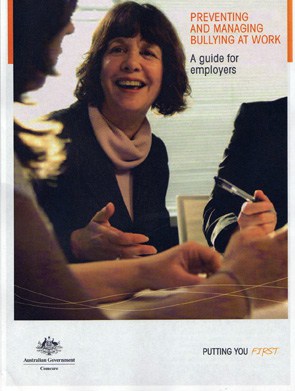A doomsaying workplace bullying survey is doing the rounds of the Australian media on 8 June 2011. The media release accompanying the survey (neither are yet available online), produced for a “web-based employment screening solution” WorkPro, says
“One quarter of employees (23%) say that they have been a victim of bullying or discrimination in the workplace in the last two years,…”
An equally valid interpretation from the same survey figures could be
“Three quarters of employees (76%) say that they have not been a victim of bullying or discrimination in the workplace in the last two years.”
The survey is terrific news. Workplace bullying may not be as big a problem in the workplace as recent media reports have led us to believe. But the survey takes the negative perspective and it is the negative that is being reiterated in the media. Continue reading “Workplace bullying survey of dubious value”


